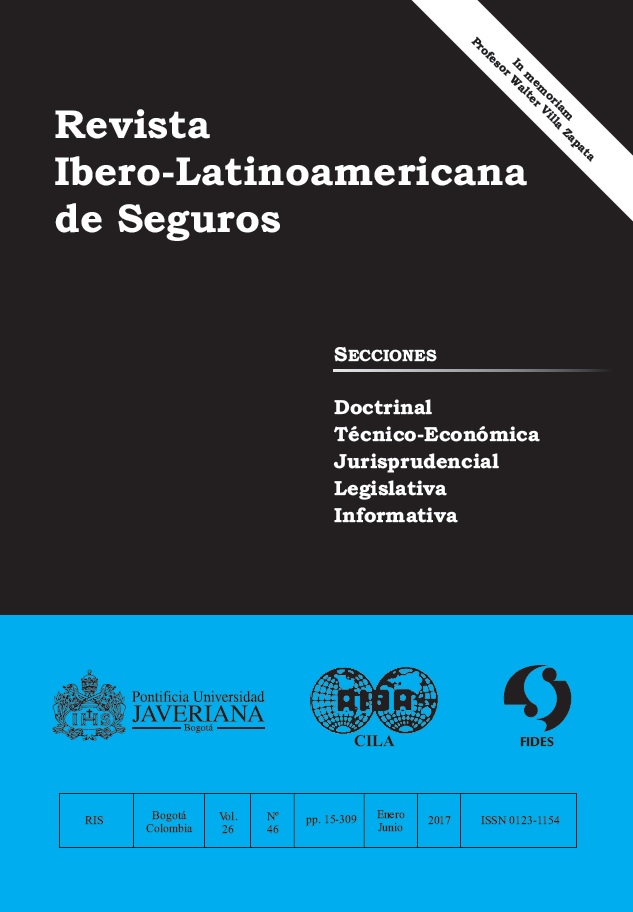Resumen
El contrato de seguro es uno en el que la buena fe tiene especial preponderancia y la misma se encuentra presente a lo largo de toda la relación aseguraticia, esto es, en la etapa precontractual, durante la vigencia del seguro e incluso después de ocurrido un siniestro. De igual manera, así como el derecho promueve la buena fe, también procura disuadir el fraude durante todas las mismas etapas. El derecho colombiano no es ajeno a esto y en este sentido al regular el contrato seguro establece una serie de reglas que promocionan la buena fe y desincentivan y castigan la mala fe y el fraude. Estas reglas son, principalmente, las siguientes: a) el deber de declarar sinceramente el estado del riesgo; b) la prohibición de contratar seguros con causas o motivos ilícitos; c) la prohibición de cubrir o asegurar los siniestros ocasionados intencional o dolosamente por el tomador, asegurado o beneficiario d) el deber de presentar las reclamaciones en buena fe; y e) la existencia del principio indemnizatorio en los seguros de daños y la consecuente regulación del sobreseguro y de la coexistencia de seguros.
Esta revista científica se encuentra registrada bajo la licencia Creative Commons Reconocimiento 4.0 Internacional. Por lo tanto, esta obra se puede reproducir, distribuir y comunicar públicamente en formato digital, siempre que se reconozca el nombre de los autores y a la Pontificia Universidad Javeriana. Se permite citar, adaptar, transformar, autoarchivar, republicar y crear a partir del material, para cualquier finalidad (incluso comercial), siempre que se reconozca adecuadamente la autoría, se proporcione un enlace a la obra original y se indique si se han realizado cambios. La Pontificia Universidad Javeriana no retiene los derechos sobre las obras publicadas y los contenidos son responsabilidad exclusiva de los autores, quienes conservan sus derechos morales, intelectuales, de privacidad y publicidad.
El aval sobre la intervención de la obra (revisión, corrección de estilo, traducción, diagramación) y su posterior divulgación se otorga mediante una licencia de uso y no a través de una cesión de derechos, lo que representa que la revista y la Pontificia Universidad Javeriana se eximen de cualquier responsabilidad que se pueda derivar de una mala práctica ética por parte de los autores. En consecuencia de la protección brindada por la licencia de uso, la revista no se encuentra en la obligación de publicar retractaciones o modificar la información ya publicada, a no ser que la errata surja del proceso de gestión editorial. La publicación de contenidos en esta revista no representa regalías para los contribuyentes.


